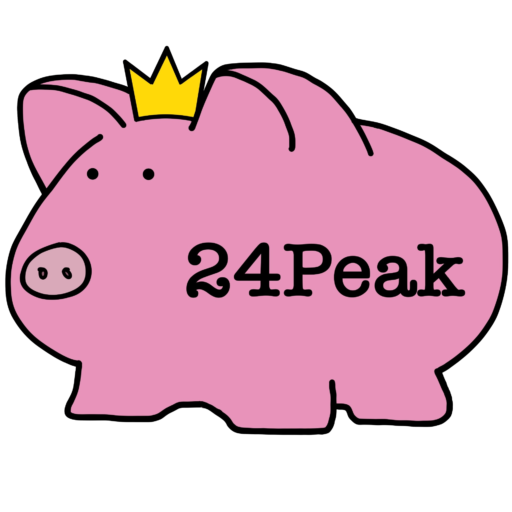Mastering Your Budget: Prioritizing Expenses by Needs and Wants

Understanding Needs vs. Wants
When mastering your budget, understanding the difference between needs and wants is important to your finances. Needs refer to essential expenses necessary for survival and a reasonable quality of life. These are the items that you cannot do without, including housing, food, healthcare, and transportation. Housing expenses like rent or mortgage payments, along with utility bills, are necessary costs that require prioritization in any budget. On the other hand, wants are non-essential items that enhance comfort, enjoyment, or luxury, but are not critical for survival. While these things can enrich your life and provide enjoyment, they do not directly contribute to meeting basic living standards.
Categorizing needs and wants is the first step for anyone looking to improve their financial habits. It allows individuals to ensure that their essential needs are met, and avoid overspending in non-essential categories. This understanding will serve as a foundation for developing a sustainable and responsible budget, leading to better financial health and stability.
Assessing Your Financial Situation
Understanding your financial situation is crucial in effective budgeting. By evaluating your current income, expenses, and existing debts, you can get a complete financial snapshot. Begin by documenting all sources of income. This can include salaries, wages, side gigs, or passive income streams. This will provide a clear picture of the total funds available for monthly expenses.
Next, categorize your expenses into fixed and variable. Fixed expenses are consistent, they can include rent or mortgage, utilities, insurance, and any loan payments. Variable expenses are things such as groceries, entertainment, or fuel, which may not always come at the same cost. Tracking your expenses over a month or two using financial software or spreadsheets can reveal spending habits and highlight areas for potential savings. One common area for savings in this day and age is subscription management. Apps or websites such as RocketMoney do a great job of highlighting unnecessary subscriptions you may want to cancel.
Another vital aspect of managing your finances is understanding your debt situation. List any debts, noting all interest rates and payment terms. It is often recommended to prioritize debts with the highest interest rates, lowering the amount of interest you pay overall.
Assessing your budget will help you determine which expenses are most important, allowing you to manage your expenses effectively. Additionally, always consider your savings. Having an emergency fund to cover at least three to six months’ worth of your expenses is advised, if possible. This provides a safety net for unexpected expenses that may arise, ensuring that you are not derailed by sudden financial shocks.
Prioritizing Expenses
Effective budgeting hinges on the prioritization of expenses, which serves as a foundation for establishing a hierarchy of spending. Your top priority should be critical needs, such as housing, food, healthcare, and transportation. These are non-negotiable expenses, essential for maintaining a basic standard of living. Putting money towards these needs is vital, as they directly affect your health and safety.
Once critical needs are addressed, your next priority should be necessary wants. These items or services enhance quality of life but are not absolutely required for survival. Examples may include internet, personal clothing, or educational expenses. While these things contribute to overall well-being, they should be evaluated thoroughly. Making informed decisions on these expenses can prevent overspending.
Finally, you have your discretionary items – luxuries that can be eliminated or postponed without significant worry. This category includes non-essential goods and services, such as entertainment, dining out, or hobbies. These expenses should be monitored closely, as they can easily lead to budgetary disruptions. The key is to create space in your budget for these extras, only after fulfilling the costs of your needs and important wants. Ultimately, mastering your budget allows individuals to prioritize their finances in a structured manner.
Making Smart Choices: Balancing Cost and Quality
When managing your budget, the decision between cost and quality can be difficult. Individuals often find themselves weighing the immediate benefits of cheaper items against the potential gain of investing in higher quality alternatives. There are many factors one should consider when making these decisions. (what factors?)
The priority of your expenses is one of many factors you should consider in this process. For essential needs such as groceries or housing, you should be careful weighing your options. The initial savings may not outweigh the difference in quality, especially if it affects your health or leads to frequent replacements. On the other hand, for non-essential items, budget-friendly options may suffice.
Sometimes this requires a distinct understanding of when to invest in quality. For example, durable appliances may have a higher upfront cost, but they can lead to substantial savings over time due to reduced maintenance and energy expenses. Similarly, high quality clothing may last longer, thereby offsetting the initial price difference. You should evaluate your own financial situation and savings goals as you consider these trade-offs.
Making informed purchases also involves research. Comparing products, reading reviews, and determining the value offered by different price points can help you make more careful decisions. This approach to spending ensures that your money is spent efficiently, making purchases that genuinely enhance quality of life without unnecessary costs. Ultimately, mastering your budget involves finding a balance between cost and quality, allowing you to gain both immediate satisfaction and long-term financial health.
